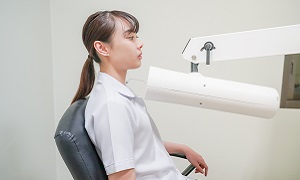Grave's Disease
Grave’s Disease is an autoimmune disorder that leads to the overproduction of thyroid hormones. The condition is called hyperthyroidism. Amongst the various causes of hyperthyroidism, Grave’s disease is the most common source. This disease is more common in women and people below 40 years of age.
Causes of Grave's Disease
Symptoms of Grave's Disease
The symptoms and signs of Grave’s disease can be:
- Heat sensitivity
- Anxiety
- Fatigue
- Increase in perspiration
- Erectile dysfunction or reduced libido
- Irritability
- Bulging eyes (Grave’s ophthalmopathy)
- Warm, moist skin
- Palpitations (rapid or irregular heartbeat)
- Frequent bowel movements
- Fine tremors of the fingers or the hands
- Weight loss
- Sleep disturbance
- Red, thick skin mostly on the top of feet or on the shins (Grave’s dermopathy)
- Enlargement of the thyroid gland (goiter)
Diagnosis of Grave's Disease
Your doctor may perform a physical examination to check for the signs and symptoms of Grave’s disease and diagnose the condition. He or she might ask you about your family history and medical history.
Blood tests
Blood tests help in determining the levels of thyroid-stimulating hormone (TSH). TSH hormone is a pituitary hormone that stimulates the thyroid gland. Blood tests also determine the levels of thyroid hormones. If you are suffering from Grave’s disease, you might have a lower level of TSH than normal with high levels of thyroid hormones.
Ultrasound
Radioactive iodine uptake
Your doctor will determine the rate of uptake of iodine by the thyroid gland by giving you some amount of radioactive iodine. He or she will measure the amount in the thyroid gland with the help of a specialized scanning camera. The doctor can determine whether the Grave’s disease or any other ailment is the cause of hyperthyroidism by determining the amount of radioactive iodine taken up by your body.
Imaging tests
Your doctor might recommend special imaging tests like an MRI or a CT scan.
Treatment options for Grave's Disease
Radioactive Iodine Therapy
You take radioactive iodine (radioiodine) in your mouth under this therapy. The thyroid gland takes this radioiodine into its cells and the radiation destroys the overactive thyroid cells with the passage of time. Ultimately, your thyroid gland shrinks while reducing the symptoms within a few weeks to a few months. It may increase your risk of new or deteriorated symptoms of Grave’s ophthalmopathy. The treatment is not for breastfeeding women or pregnant women.
Anti-thyroid medications
Beta blockers
Surgery
Another treatment option for Grave’s Disease is thyroidectomy (removal of the thyroid) or subtotal thyroidectomy (removal of a part of your thyroid). You might need treatment to supply thyroid hormones in normal amounts after the surgery. The associated risk with this treatment is probable damage to the nerve controlling your parathyroid glands (tiny glands located near thyroid gland) and vocal cords. You might need to take lifelong thyroid medications after this surgery.
Lifestyle and home remedies
- Releasing stress: Stress worsens or triggers Grave’s disease. So, easing your stress might be helpful. You can listen to music or take a warm bath to relieve stress. Take the help of your doctor to create a plan involving good exercise, proper nutrition, and relaxation in your regular schedule.
- Eating well and exercise: Taking a balanced diet and exercising well helps to improve the symptoms during treatment. This makes you feel better. Weight-bearing exercises help to maintain bone density.








